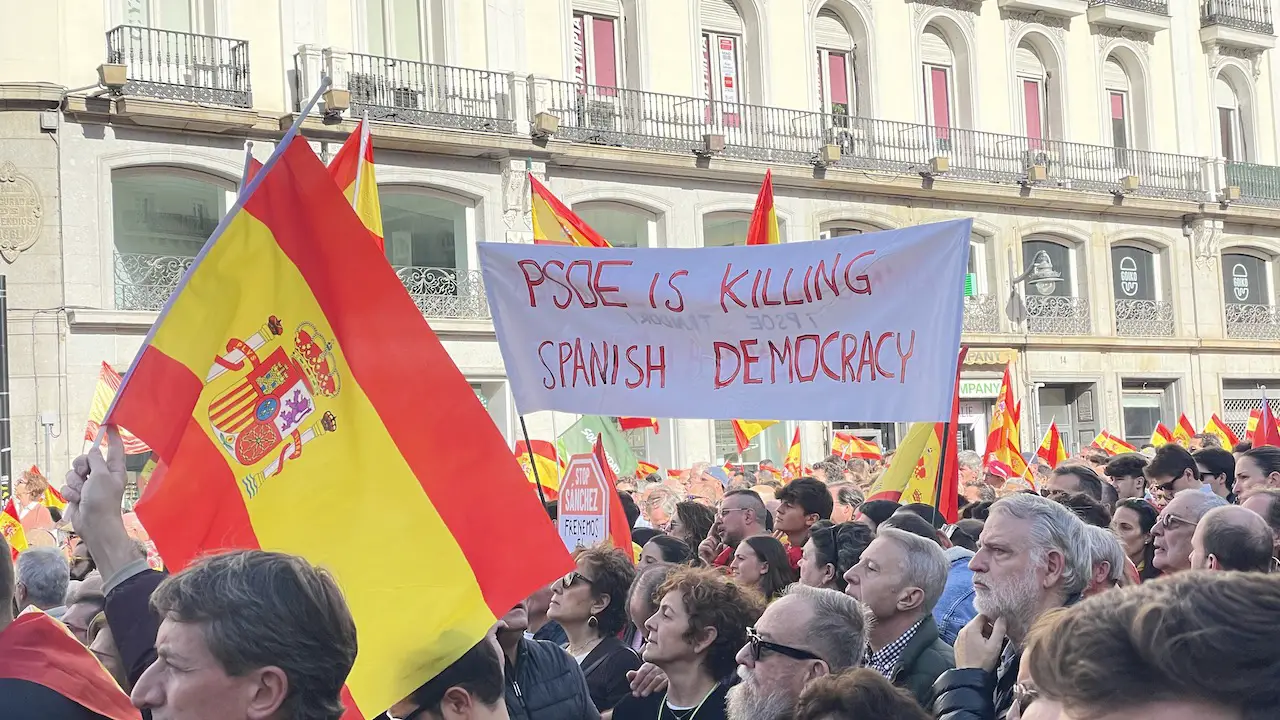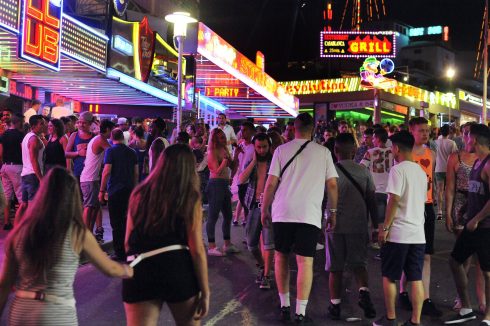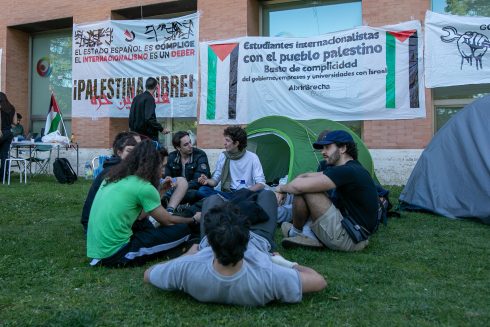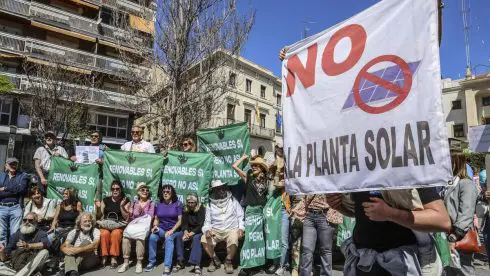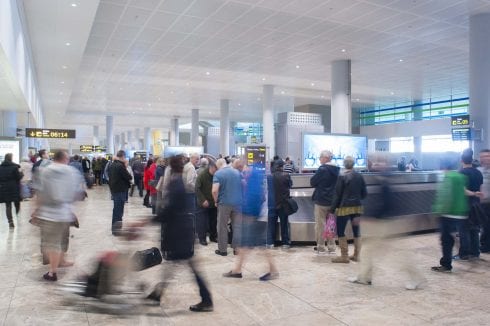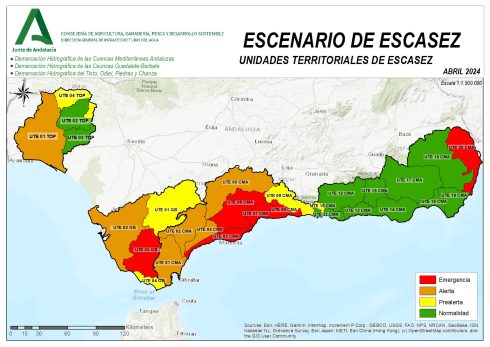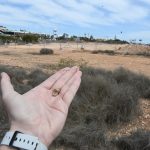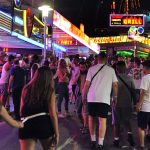MASS demonstrations were held across Spain on Sunday in rejection of deals struck by the caretaker prime minister, Socialist Party leader Pedro Sanchez, and Catalan separatist parties.
The protests came on the back of nearly 10 days of sometimes violent protests outside the Socialists’ headquarters in many parts of Spain, but mostly in Madrid.
So what is going on? Why has the Spanish public been so enraged by the agreements?
The deals
Opposition parties and protestors alike are angered at the deals the Socialist Party (PSOE) has struck with two political parties: the Catalan Republican Left (ERC) and Together for Catalunya.
The deals promise the cancelling of debts that the Catalunya region holds with the state, increased powers for the regional government to raise taxes, and a route map toward further talks on independence.
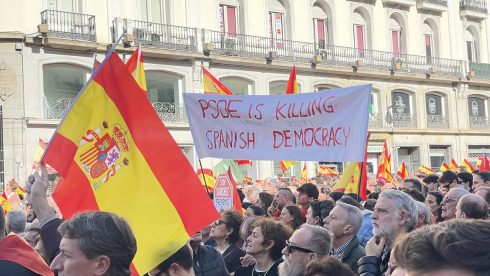
In exchange these parties have pledged to support Pedro Sanchez’s bid to hold onto power at an investiture vote that has been tabled for this week.
In the wake of the inconclusive general election on July 23, Sanchez needs the support of a series of parties, including his future coalition partner, the new leftist alliance Sumar, and both the ERC and Together for Catalunya, if he is to become prime minister for a new term.
What does the amnesty involve?
The most controversial part of the deals, and the one that has sparked the greatest outrage and the protests, is the amnesty Sanchez has offered for anyone who is facing prosecution for their role in the Catalan independence drive
Details of the amnesty law that is due to be registered in Congress in the coming days have only just emerged, but until now there had been plenty of speculation and rumour.
According to reports in the press today, Monday, the amnesty will involve annulling the ‘criminal, administrative and accounting responsibility’ for anyone who committed an offence during the independence drive over the period of a decade: January 1, 2012 to November 13, 2023.
Who does the amnesty benefit?
The most high-profile beneficiaries of the amnesty will be the then-premier of the Catalonia region back in 2017, Carles Puigdemont of Together for Catalunya, and his then-deputy, Oriol Junqueras.
Puigdemont fled Spain in the wake of the events of October 2017, of which he was considered the architect. That month saw an illegal referendum on secession from Spain held in the region, and then a unilateral declaration of independence was passed by the regional government.
Since then Puigdemont has been living in self-imposed exile in Brussels to avoid arrest and trial, but under the terms of the amnesty he will be able to come back to Spain.
Junqueras, meanwhile, was arrested, tried and imprisoned for his role in the independence drive. He has since been pardoned by the government under the leadership of Pedro Sanchez and released from prison but is currently banned from holding public office. The amnesty would see this ban lifted.
Also to benefit will be the school principals who allowed their centres to be used as voting stations and police officers facing charges for their violent conduct toward members of the public during the illegal referendum, among other lower-profile figures.
Why has the deal angered politicians, the judiciary and citizens?
There are many arguments being used against Sanchez’s plan. One of these is related to the role of an international mediator to oversee future talks between the Socialists and the Catalan parties, something that critics say puts the northeastern region on a par with a foreign country in such negotiations.
What’s more, Spain’s four main judges’ associations issued a statement claiming that the deal would threaten the independence of the judiciary. Parliamentary commissions that investigate rulings involving the Catalan independence drive could violate the separation of powers, they argue.
The country’s legal watchdog, the General Council of the Judiciary (CGPJ), has also stated that the amnesty would overturn court decisions and endanger the rule of law.
Protests in Ferraz street
When the first deal between the Socialists and the ERC was announced, spontaneous protests broke out at the PSOE headquarters in Madrid’s Ferraz street, as well as in other cities. In the Spanish capital, however, these have become an almost nightly event, sometimes turning violent due to the presence of so-called ultras: neo-Nazis and far-right elements.
These protestors, many of whom have been attending Ferraz street wearing scarves and other items of clothing to protect their identities, have been throwing objects at riot officers and charging police lines.
The nightly demonstrations in Ferraz street have been attended by as many as 7,000 protestors, with the far-right elements thought to number around 400.
Scuffles and arguments have even broken out between these two groups, with the peaceful protestors trying to expel the violent elements from the demonstrations.
Police sources have told Spanish media that the ultras are linked to radical football groups, with the absence of these violent elements noted during a recent Champions League game played by Atletico de Madrid.
The Popular Party-led protests
The biggest demonstrations, however, were held on Sunday, November 12. The leader of the conservative Popular Party, Alberto Nuñez Feijoo, called on Spaniards to come out and protest in all of the country’s 52 provincial capitals at 12pm.
Data collated by the National Police and reported by Spanish daily El Pais suggest that just over 515,000 people came out to demonstrate on Sunday across Spain.
The biggest crowds were seen in Madrid, where the central government’s delegation in the capital put the total at 80,000 people, as did the police.
Fifteen of the 99 protests recorded by the authorities brought together more than 10,000 people, while less than 100 people were in attendance at 27 of the protests, El Pais reported.
No trouble
The demonstrations on Sunday, however, were largely trouble-free, in stark contrast to those that have been held outside the PSOE headquarters in Madrid since November 3. There was one arrest in Puerta del Sol, and another three in A Coruña, Galicia, when a brawl broke out on the streets.
Losing steam?
The protests in Ferraz street may, however, be losing steam. After the protest in Madrid on Sunday, around 3,000 people headed to the PSOE headquarters. On Sunday night, the demonstrators returned, although there were only 1,200 according to the central government’s delegation in the city, and there were no arrests.
However, on Monday details of the amnesty deal were published in the Spanish press, while the dates for the investiture debate – this Wednesday and Thursday – were also announced.
With Pedro Sanchez set to be voted back into office by lawmakers before the end of the week, thanks to the support of the Catalan separatist parties, there may still be plenty of unrest to come in Spain.
Read more:
- Thousands take to streets of Spain to protest against Socialist Party’s Catalan amnesty deal
- Spain set to finally have a government as Pedro Sanchez secures 179 votes ahead of investiture vote next week
- Leader of Spain’s conservative Popular Party slams Pedro Sanchez’s Catalan amnesty deal

